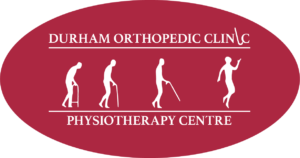In today’s fast-paced world, heart health has become more crucial than ever. Cardiovascular diseases are among the leading causes of death globally, but the good news is that many risk factors can be managed with lifestyle changes. While diet and exercise often take the spotlight, physiotherapy is an equally powerful tool in improving cardiovascular health. Through personalized treatment plans, physiotherapists help individuals enhance their heart function, increase endurance, and reduce risks associated with heart disease. Whether you’re recovering from a cardiac event or aiming to prevent one, physiotherapy offers a holistic approach to strengthening your cardiovascular system.
Exercise Prescription and Supervision
Tailored Exercise Programs
Physiotherapists design individualized exercise programs that cater to each patient’s specific cardiovascular condition, fitness level, and goals. These programs typically include a combination of aerobic exercises, strength training, and flexibility exercises.
Aerobic Exercise
Aerobic exercises, such as walking, cycling, and swimming, are central to cardiovascular health. They help improve heart and lung function, reduce blood pressure, and increase overall endurance. Physiotherapists ensure that patients engage in safe and effective aerobic exercise, gradually increasing intensity as tolerated.
Strength Training
Building muscle strength is crucial for supporting overall cardiovascular health. Strength training helps improve metabolism, manage weight, and enhance the body’s ability to use oxygen efficiently. Physiotherapists incorporate resistance exercises to strengthen major muscle groups without placing excessive strain on the heart.
Monitoring and Progression
Physiotherapists monitor patients’ responses to exercise, ensuring that they stay within safe limits while progressively increasing their physical activity levels. This careful monitoring is especially important for patients with existing cardiovascular conditions.
Cardiac Rehabilitation
Structured Rehabilitation Programs
Cardiac rehabilitation is a specialized area of physiotherapy focused on patients recovering from heart attacks, heart surgery, or those managing chronic heart conditions. These programs are designed to improve cardiovascular function, reduce symptoms, and enhance the quality of life.
Education and Lifestyle Modification
Cardiac rehabilitation includes education on heart-healthy lifestyle choices, such as nutrition, smoking cessation, and stress management. Physiotherapists work with patients to adopt and maintain these changes, which are critical for long-term heart health.
Psychological Support
Cardiovascular events can be emotionally challenging. Physiotherapists in cardiac rehab programs often provide psychological support, helping patients cope with anxiety, depression, and the emotional aspects of recovery.
Blood Pressure and Cholesterol Management
Exercise’s Role in Reducing Blood Pressure
Regular physical activity, guided by a physiotherapist, can significantly reduce high blood pressure. Exercise helps improve the elasticity of blood vessels, reduces resistance to blood flow, and enhances the heart’s ability to pump blood efficiently.
Impact on Cholesterol Levels
Exercise also positively affects cholesterol levels by increasing HDL (good cholesterol) and lowering LDL (bad cholesterol) and triglycerides. Physiotherapists help patients maintain an exercise routine that supports these healthy changes.
Enhancing Respiratory Function
Breathing Exercises
For patients with cardiovascular disease, improving respiratory function is crucial. Physiotherapists teach breathing exercises that enhance lung capacity, improve oxygenation, and reduce the workload on the heart.
Posture and Chest Mobility
Proper posture and chest mobility are important for optimal lung function. Physiotherapists work on exercises and techniques that promote better posture and flexibility in the chest wall, which can aid in breathing and cardiovascular efficiency.
Weight Management
Exercise and Weight Loss
Obesity is a major risk factor for cardiovascular disease. Physiotherapists design exercise programs that promote weight loss while being mindful of the patient’s cardiovascular condition. Regular exercise helps in burning calories, building muscle, and improving metabolic health.
Long-Term Weight Maintenance
Sustained weight loss is essential for cardiovascular health. Physiotherapists provide ongoing support and adjustments to exercise programs to help patients maintain a healthy weight over the long term.
Physiotherapy is a powerful tool in the management and prevention of cardiovascular disease. By providing tailored exercise programs, cardiac rehabilitation, and support for lifestyle changes, physiotherapists play a key role in enhancing heart health and improving overall quality of life. Whether you are recovering from a cardiovascular event or looking to prevent one, incorporating physiotherapy into your health regimen can lead to significant benefits.
If you are concerned about your cardiovascular health or have been diagnosed with a heart condition, consider contacting a physiotherapist at Durham Orthopedic & Sports Injury Clinic to develop a personalized plan that supports your heart and helps you lead a healthier, more active life.


